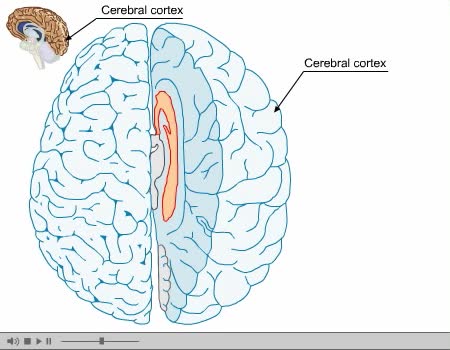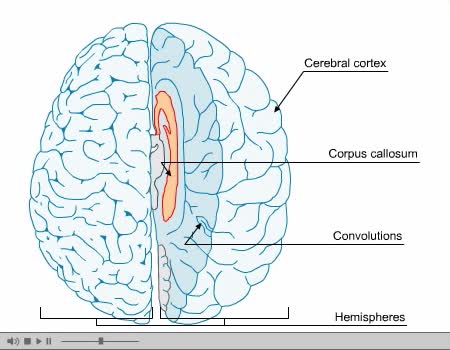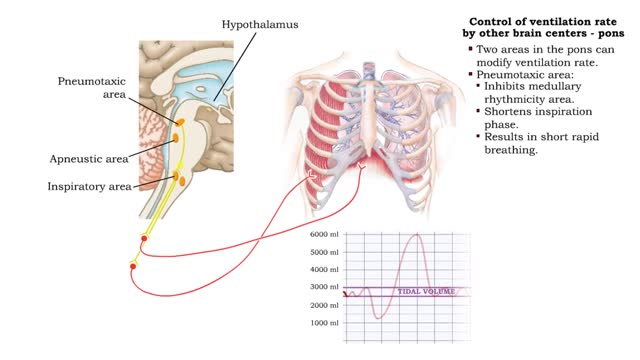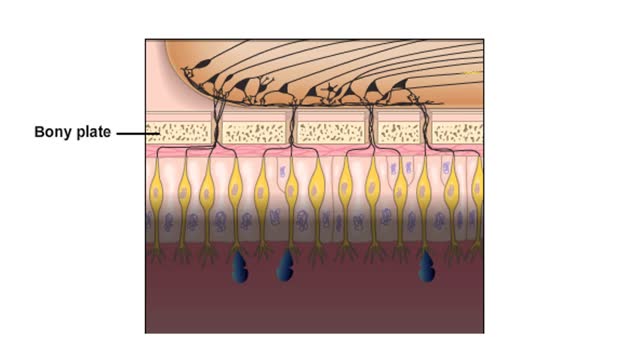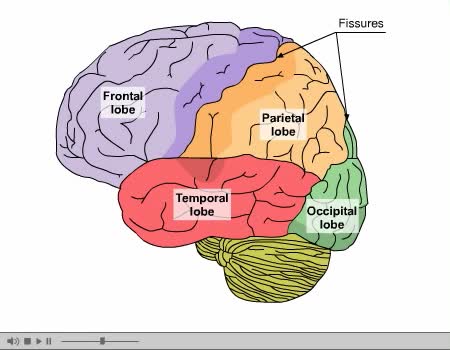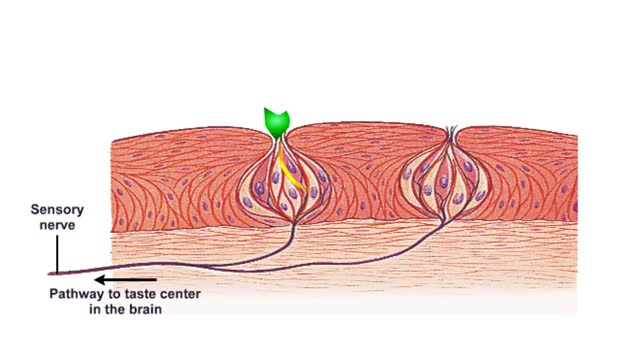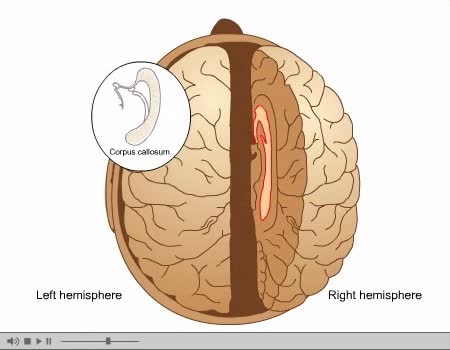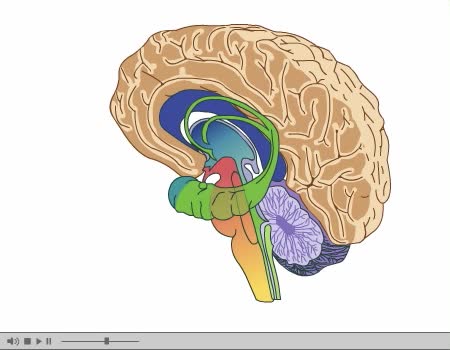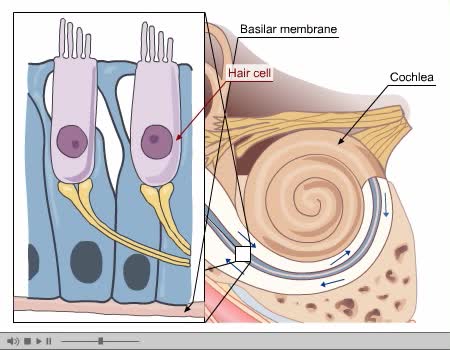Search Results
Results for: 'cerebral cortex of the brain'
By: Administrator, Views: 14265
The cerebral cortex (plural cortices), also known as the cerebral mantle, is the outer layer of neural tissue of the cerebrum of the brain, in humans and other mammals. It is separated into two cortices, by the longitudinal fissure that divides the cerebrum into the left and right cerebral hemisp...
By: Administrator, Views: 13821
The corpus callosum (Latin for "tough body"), also callosal commissure, is a wide, thick, nerve tract consisting of a flat bundle of commissural fibers, beneath the cerebral cortex in the brain. The corpus callosum is only found in placental mammals. It spans part of the longitudinal fissure, con...
Control of ventilation rate by other brain centers (posts, hypothalamus & cerebral cortex)
By: HWC, Views: 10845
Forced ventilation: • The inspiratory area stimulates accessory inspiratory muscles. • Inspiration is more forceful. • Inspiratory area activates expiratory area, which sends impulses to the expiratory muscles (internal intercostals and abdominal muscles). • Expiration muscles c...
Olfaction. or the sense of smell
By: HWC, Views: 8374
Do you ever wonder how you can distinguish thousands of different odors? Olfaction. or the sense of smell, is used by all mammals to navigate, find food, and even find mates. We have millions of olfactory receptors for smelling in our nose. These receptor neurons bind water-soluble or volatil...
By: Administrator, Views: 15114
The brain’s cerebral cortex is the outermost layer that gives the brain its characteristic wrinkly appearance. The cerebral cortex is divided lengthways into two cerebral hemispheres connected by the corpus callosum. Traditionally, each of the hemispheres has been divided into four lobes: front...
What are Taste Receptors? How Does it Work? Animation
By: HWC, Views: 7821
Do you ever wonder how you can taste the foods you eat? It all starts with taste receptors in your muscular tongue. Taste receptor neurons are found in your taste buds but you are not looking at the taste buds. The raised bumps on the surface of the tongue that you see are specialized epith...
Brain Anatomy Animation (Part 1 of 2)
By: Administrator, Views: 14389
The human brain is the central organ of the human nervous system, and with the spinal cord makes up the central nervous system. The brain consists of the cerebrum, the brainstem and the cerebellum. It controls most of the activities of the body, processing, integrating, and coordinating the infor...
Brain Anatomy Animation (Part 2 of 2)
By: Administrator, Views: 15248
Its nervous tissue consists of millions of nerve cells and fibers. It is the largest mass of nervous tissue in the body. The brain is enclosed by three membranes known collectively as the meninges: dura mater arachnoid pia mater The major structures are the: cerebrum cerebellum dienc...
By: Administrator, Views: 14259
Process of Hearing Sound waves are directed to the eardrum, causing it to vibrate. These vibrations move the three small bones of the middle ear (malleus, incus, and stapes). Movement of stapes at oval window sets up pressure waves in the perilymph and endolymph. Process of Hearing The wav...
Advertisement



